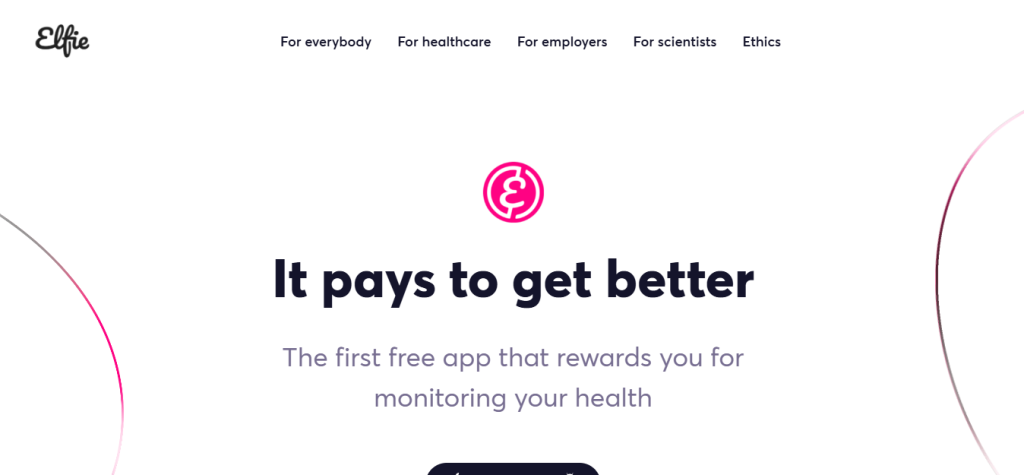Elfie Raises $12M to Reinvent Preventative Health Through Data and Engagement
July 10, 2025
byFenoms Startup Research

Elfie, a rising star in the digital health space, has just raised $12 million in fresh funding, a strong vote of confidence from leading investors including White Star Capital, LifeX Ventures, Integra Partners, FEBE Ventures, and Hustle Fund. The round was led to support the company's ambitious mission: to revolutionize the way people engage with their health - before it turns into a crisis.
With Ofir Ejnès at the helm as CEO, Elfie is positioning itself as the go-to platform for proactive health management. Their platform blends health monitoring, rewards-based engagement, and AI-powered coaching - all in one user-centric app.
The Product: Gamified Preventative Healthcare
Elfie stands out in the crowded healthtech space by addressing one of the biggest challenges in healthcare - adherence and engagement.
Rather than waiting for people to get sick, Elfie empowers users to stay healthy through habit-forming tools, daily incentives, and clinically relevant education. Its mobile app offers medication tracking, biometric monitoring, wellness quizzes, and gamified health goals.
What truly sets Elfie apart is its rewards engine. Users earn points for completing health-related actions like taking medications on time, checking blood pressure, or completing health education modules. These points are redeemable for real-world benefits - turning healthy habits into tangible outcomes.
For health insurers, governments, and employers, this means reduced costs and improved long-term outcomes. For users, it means better health without the friction.
Why It Matters Now
The surge in chronic conditions - particularly diabetes, hypertension, and cardiovascular disease - has placed unsustainable pressure on global healthcare systems. According to the World Health Organization, chronic diseases account for 74% of all global deaths, with many of these preventable through lifestyle changes and early intervention.
But prevention is notoriously hard to scale.
That’s where Elfie’s model shines. By making health engagement fun, mobile, and rewarding, they reduce barriers to behavioral change and reach users before conditions escalate. Especially in emerging markets where access to doctors is limited and mobile phone penetration is high, Elfie fills a critical gap.
And with investors pouring $12 million into the company, the timing couldn’t be better.
Founders take note: In habit-driven markets, the app isn't the product - the system of return behavior is.
Elfie didn’t try to create another feature-stacked health app. They engineered a behavioral engine. Every tap, notification, and incentive in their app is designed to reinforce consistency - because they understand that retention in health apps doesn’t come from functionality, but from feedback loops.
Founders often chase utility-first solutions, especially in healthcare. But without behavior design, the most innovative tool gets abandoned after week two. What Elfie builds is not just an app - it’s a habit architecture. That’s what insurers, employers, and governments will ultimately pay for - not screen time, but sustained impact.
If you want to build a category-defining product in healthcare, don’t just ship outcomes. Engineer the return path.
The Ultra Value Drop: The Real Leverage Is in Engagement Infrastructure
Here’s the major insight founders need to understand: Elfie isn’t building another telehealth app or passive tracker - it’s building the rails for long-term patient behavior infrastructure.
Most digital health platforms focus on features: dashboards, wearables, or content libraries. But these often sit unused because they fail to answer the real question: how do you get people to care consistently about their health?
Elfie flips this by treating engagement as the product.
Founders: if you’re tackling low-frequency use cases - like healthcare, insurance, or legal - stop focusing only on what your app does. Start thinking about what keeps people coming back. Elfie’s core innovation isn’t the tech - it’s the loop. The incentive system, the bite-sized modules, the sense of progress.
That’s where defensibility lives.
When you create behavior infrastructure, your product becomes a habit, not a tool. That’s how Elfie is building staying power in a notoriously difficult market.
Market Outlook: The Rise of Consumer-Driven Preventative Health
Elfie is tapping into one of the most urgent and underserved trends in global healthcare: consumer-driven prevention.
- The global digital health market is expected to reach $660 billion by 2025, according to Statista.
- Preventative healthcare spending is growing at over 12% CAGR, driven by insurers and employers seeking to cut long-term costs.
- A 2023 McKinsey report found that 76% of consumers are willing to track at least one health metric on mobile - but only 19% sustain usage beyond a few months.
This gap between interest and sustained action is Elfie’s opportunity.
By aligning incentives, simplifying interfaces, and localizing content, Elfie solves the hardest part of healthtech: getting users to engage without being told to.
In high-growth markets like Southeast Asia, where Elfie already has a presence, mobile-first health engagement is not just a nice-to-have - it’s an infrastructure need.
What’s Next for Elfie?
With its new funding, Elfie plans to scale across Asia and expand its product offering to include AI-powered nudges, deeper integrations with insurers, and more localized wellness incentives.
The company is also actively partnering with public health agencies to improve adherence rates for chronic illness medication - a pain point with massive economic implications.
By combining strong user adoption, measurable health outcomes, and a model that aligns everyone’s incentives - Elfie is not just riding the preventative health wave. It’s shaping it.









